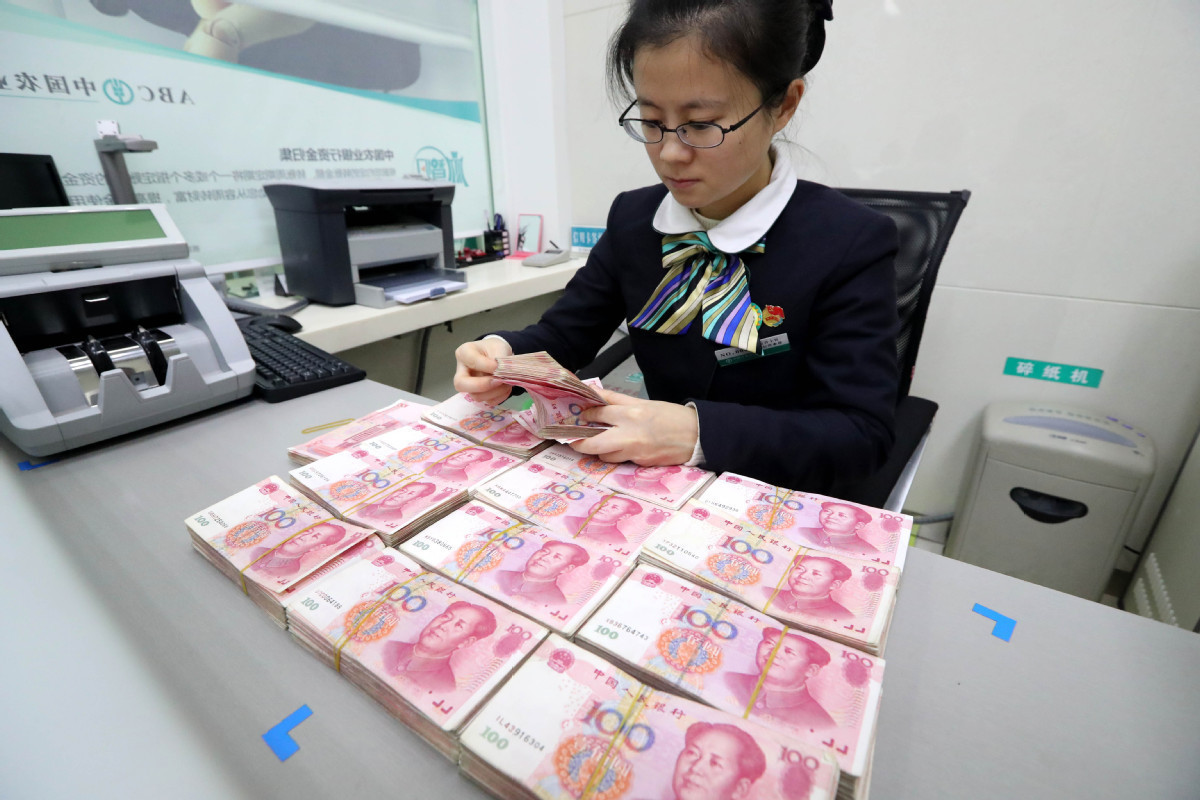Fiscal measures primed to weather coming storm


To counter the economic shocks caused by the novel coronavirus outbreak, China will rely on extensive fiscal measures and maintain a flexible stance on monetary policy, according to signals in the Government Work Report and the annual fiscal budget arrangement.
The Government Work Report, delivered by Premier Li Keqiang to the third session of the 13th National People's Congress on Friday, said the government set the deficit-to-GDP ratio at "3.6 percent or higher this year", with the deficit 1 trillion yuan ($140 billion) more than last year.
In addition, 1 trillion yuan of central government special bonds will be issued to fund coronavirus control measures.
All proceeds of the special bond issuance and the rise in the fiscal deficit, totaling 2 trillion yuan, will be transferred to local governments, the report said.
It highlighted fiscal support for the economy, despite setting no GDP growth target, as the pandemic disrupts activity via a combination of domestic and external shocks.
The fiscal deficit ratio was set higher than the 2019 target of 2.8 percent.
Analysts said the phrase "or higher", used in the report, is a new expression that may indicate a willingness to raise the level later if necessary.
Lu Ting, chief economist in China with Nomura Securities, said Beijing is relying on demand stimulus, focusing mainly on infrastructure investment, to counter the effect of the coronavirus, which has delivered the worst blow to the economy since the late 1970s.
Martin Petch, a vice-president and senior credit officer at Moody's Investors Service, said the expansion of infrastructure investment in a slow growth environment may raise public sector debt, which must balance short-term economic support with the longer-term objective of stability.
Effie Xin, managing partner of financial services Greater China at EY, said China faces downward pressure on economic growth as structural and cyclical factors constrain prospects. In addition, the coronavirus outbreak has had an adverse impact on economic activity, both in China and globally.
"To address the impact, larger than expected stimulus policies introduced across economies will likely change the international economic and trading landscape to a certain extent, posing considerable uncertainty to the global economy and exposing listed banks to new difficulties and challenges in business operations and development," she said.
In the face of uncertainty, Beijing has raised the local government special bond quota to 3.75 trillion yuan, or 3.6 percent of GDP.
"Fiscal stimulus after demand shocks tends to be especially powerful when the economy has unemployed resources and monetary policy is accommodative," said John Bluedorn, a deputy division chief in the World Economic Outlook Research Department at the International Monetary Fund.
If the rules for fiscal stimulus are communicated well and are established before shocks occur, they can help shape expectations and reduce uncertainty, thereby dampening the decline in activity once a negative shock materializes, Bluedorn said.
"Monetary policy can support fiscal stimulus in a recession by maintaining an accommodative stance, including by easing financial market conditions," he added.
The Government Work Report said the nation will maintain a prudent monetary policy in a more flexible and appropriate way.
A variety of tools will be used, such as reductions in the reserve requirement ratio, interest rate cuts and re-lending, to enable broad money supply and aggregate financing to grow at notably higher rates than last year, it said.
This month, the one-year loan prime rate was left unchanged at 3.85 percent, the People's Bank of China, the central bank, reported on Wednesday.
In addition, there were no cuts to the medium-term lending facility or other rates.
In light of the growth in the bond supply to fund the government's surging fiscal deficit, market rates will rise further unless the PBOC injects more long-term liquidity into the banking system via cuts in the reserve requirement ratio, the medium-term lending facility or other lending facilities, or by cuts to the benchmark bank deposit rate, according to research by Nomura Securities.
"The chances that the PBOC will cut the benchmark bank deposit rate are getting smaller," it said.
Last week, the Ministry of Finance released fiscal data for April. Total budgeted revenue dropped by 15 percent from the same month last year, after a decline of 26.1 percent in March.
Meanwhile, fiscal expenditure growth jumped to 7.5 percent year-on-year from a decline of 9.4 percent in March, as China ramped up policy stimulus measures.
In the first four months, the government's general public budget income dropped by 14.5 percent from the same period a year ago, and tax income declined by 16.7 percent, the ministry reported.
Economists forecast that fiscal revenue growth may rise in the coming months, but the pace of recovery could slow significantly due to slumping external demand, the lagging impact of the coronavirus on corporate profits, and waivers and delays in tax payments.
In addition to government debt, "Beijing may rely more on commercial bank lending and the corporate bond markets to fund its numerous State-owned enterprises, local government financing vehicles and even the private sector to arrest the sharp slowdown," Lu, from Nomura Securities, said.
Wei Benhua, former deputy administrator of the State Administration of Foreign Exchange and former executive director for China at the IMF, said the country is in a good position to use fiscal and monetary policy to counter coronavirus shocks.
Measured by any international standard, China's annual and cumulative fiscal deficits are much lower than those of developed countries, he added.
"China still has the potential to mobilize resources to support the economy. For example, we could continue to lower the RRR, lower interest rates and inject more liquidity into the economy," he said.
Externally, China is able to achieve a reasonable balance so the yuan exchange rate continues to be stable, according to Wei.




































